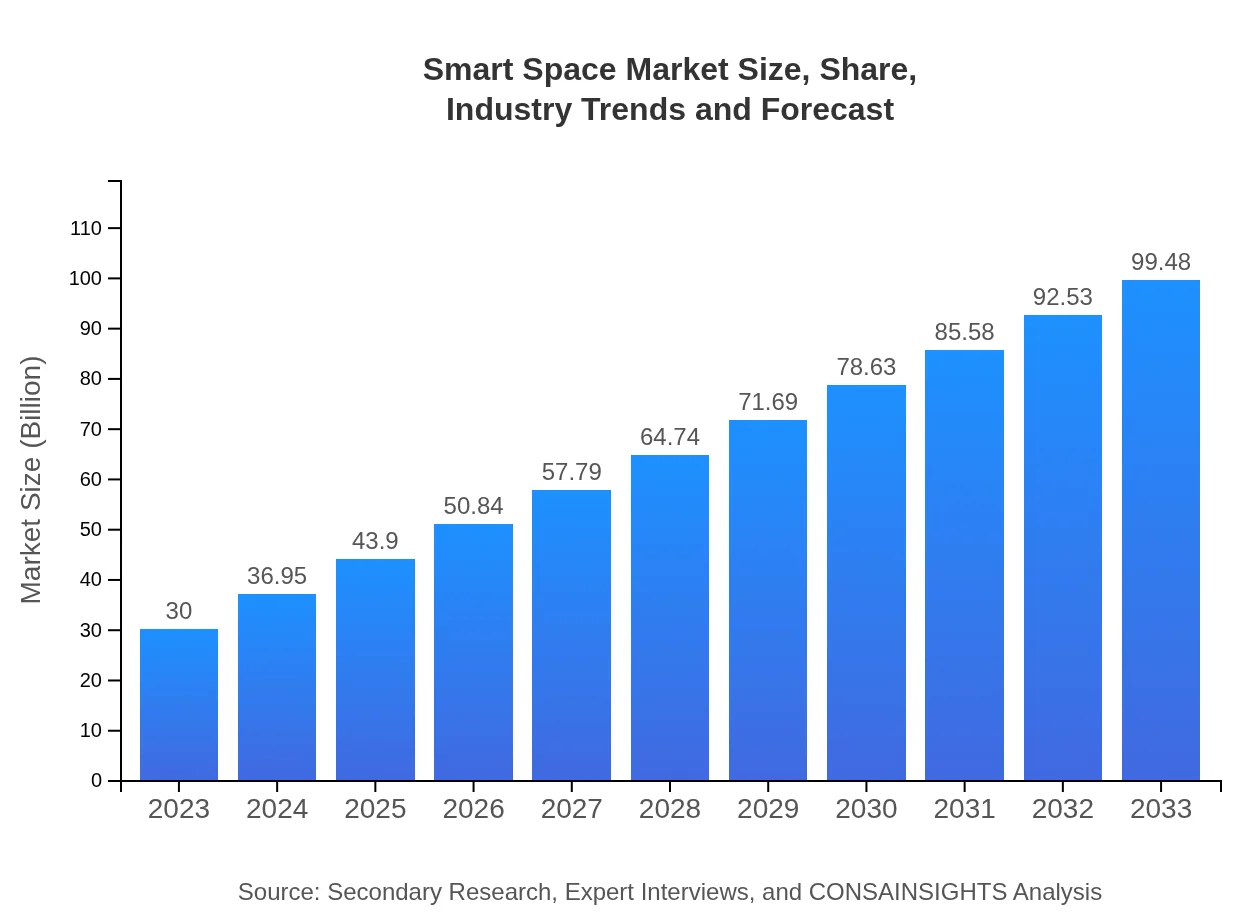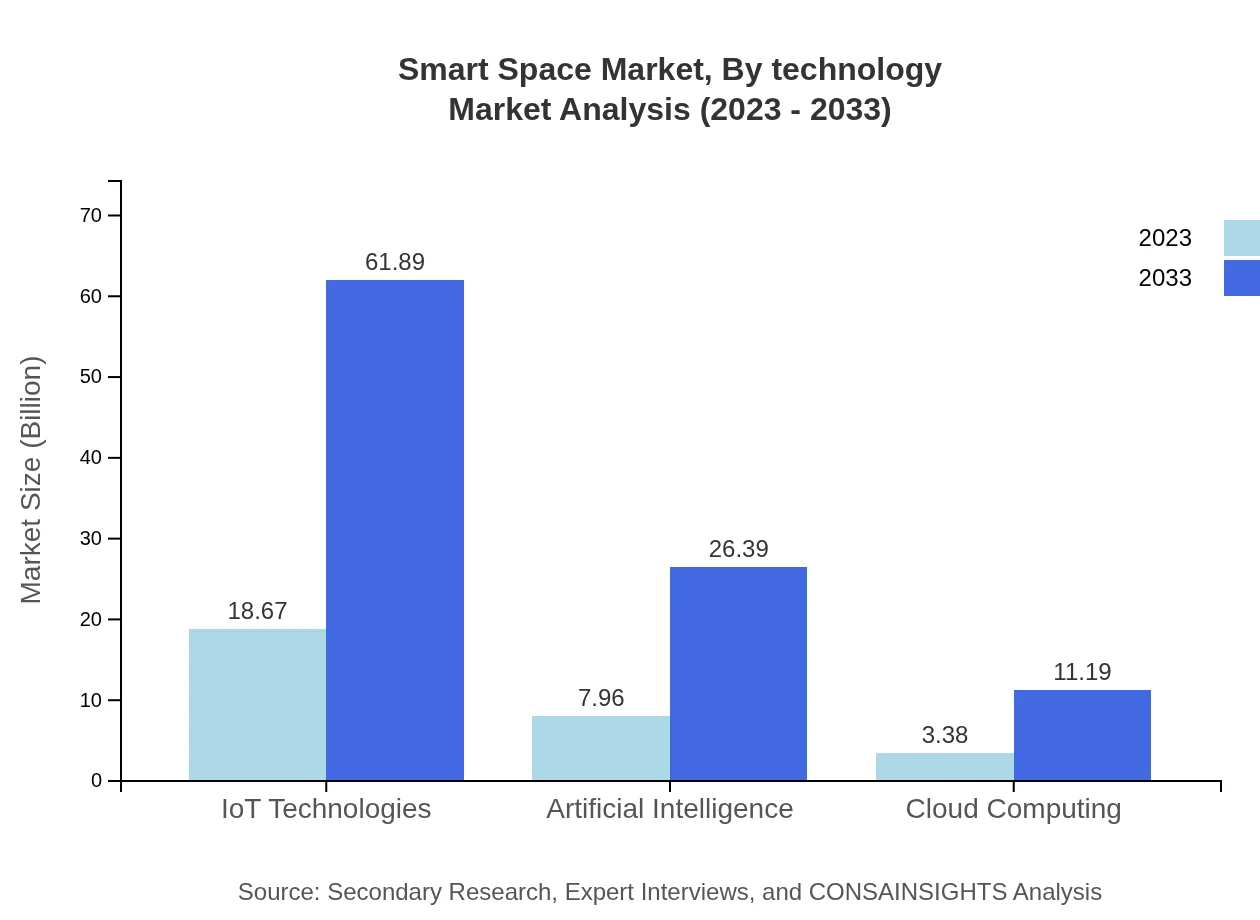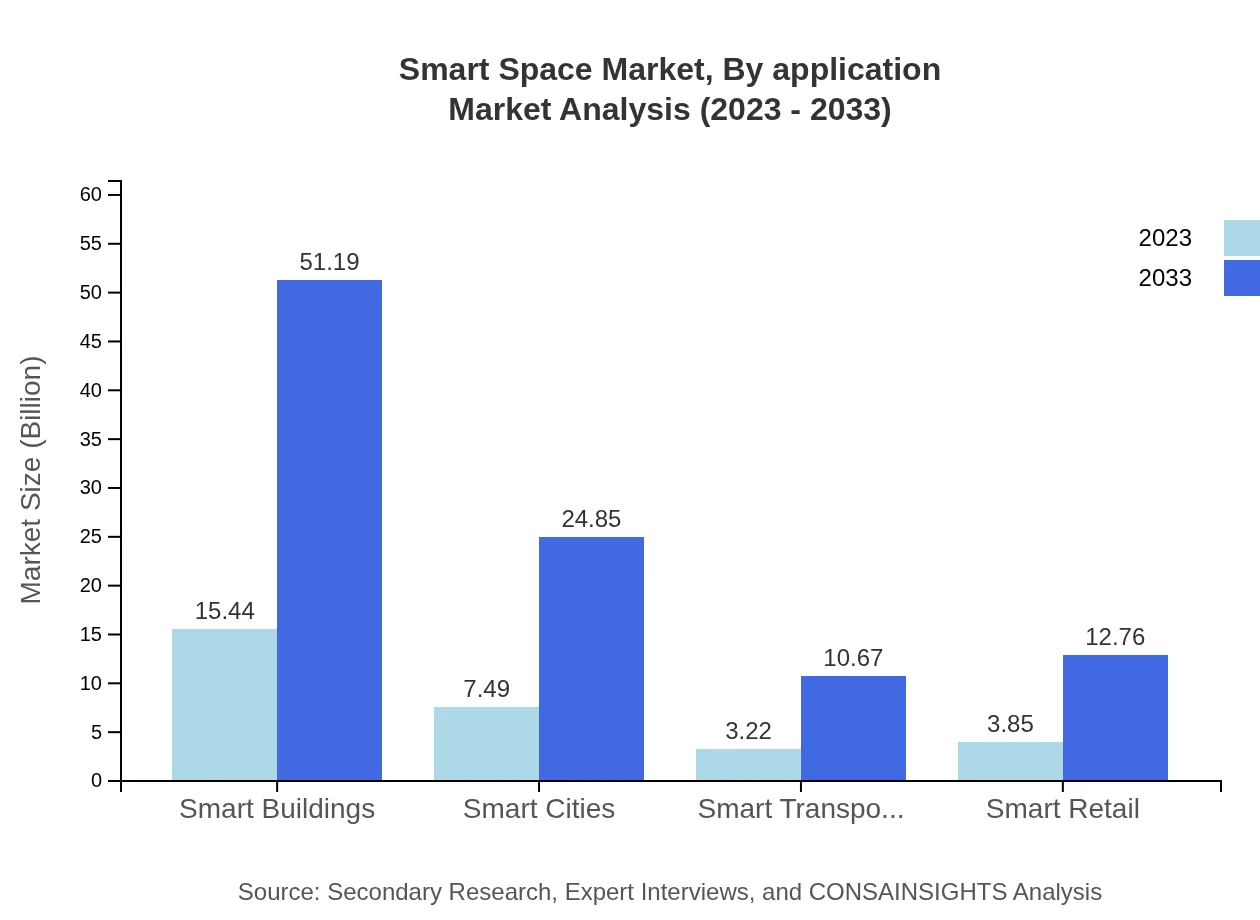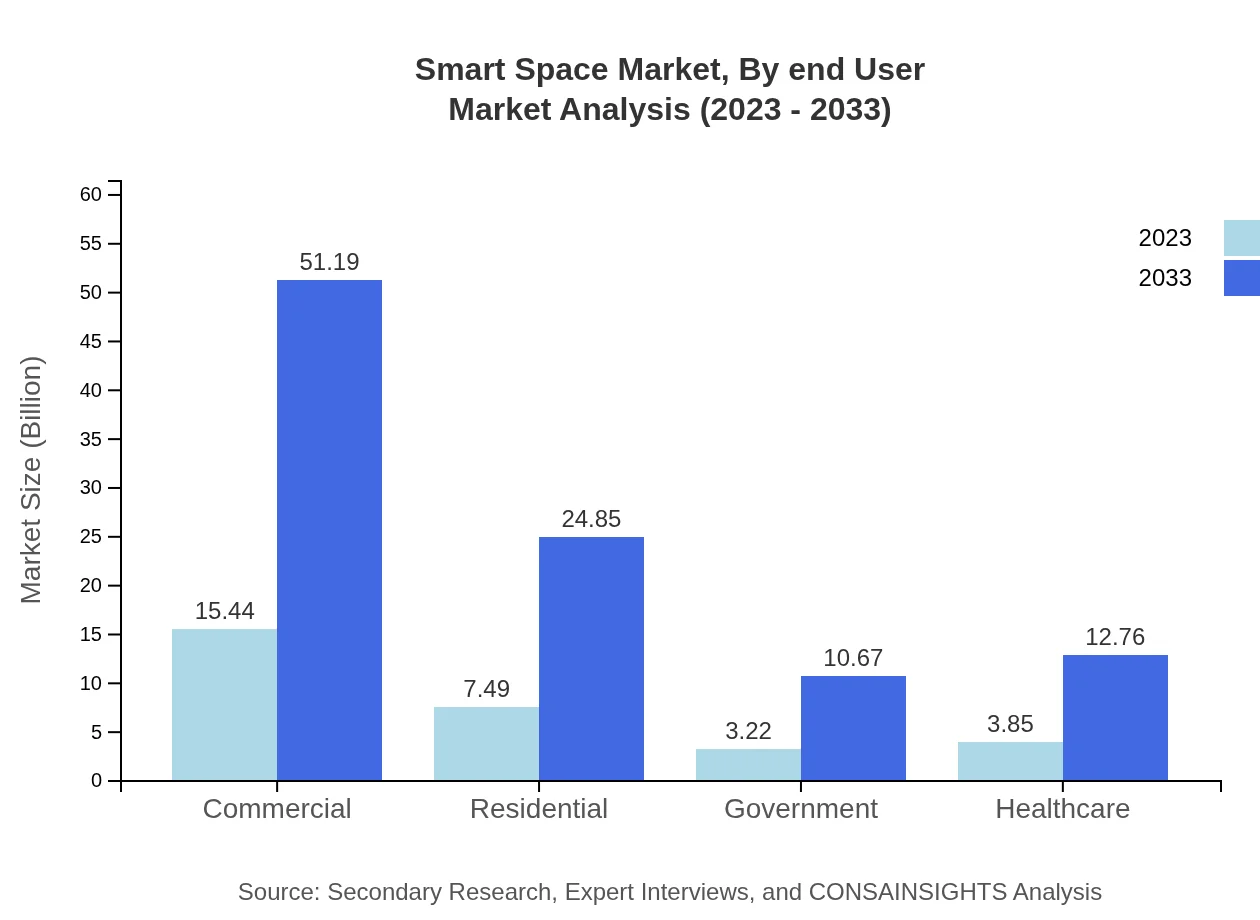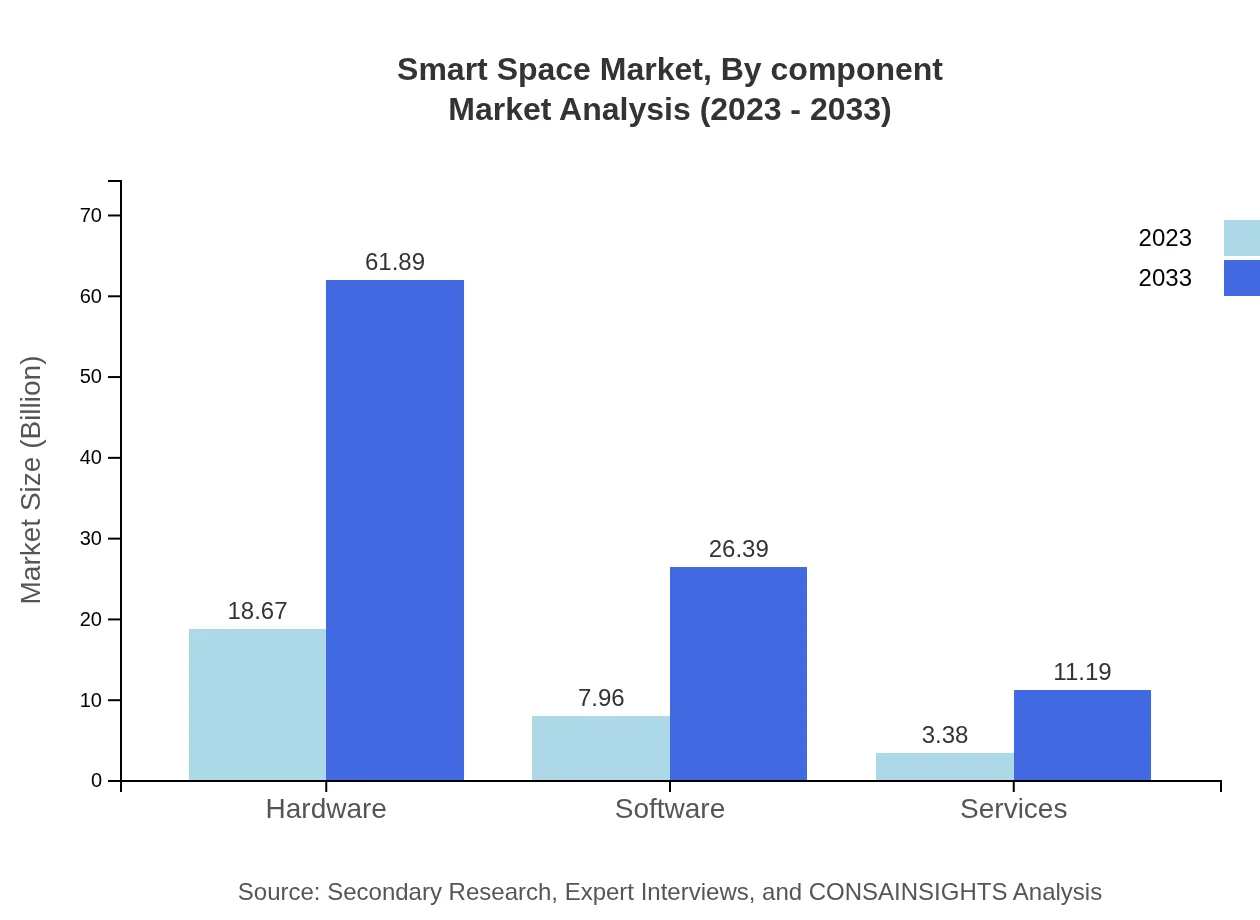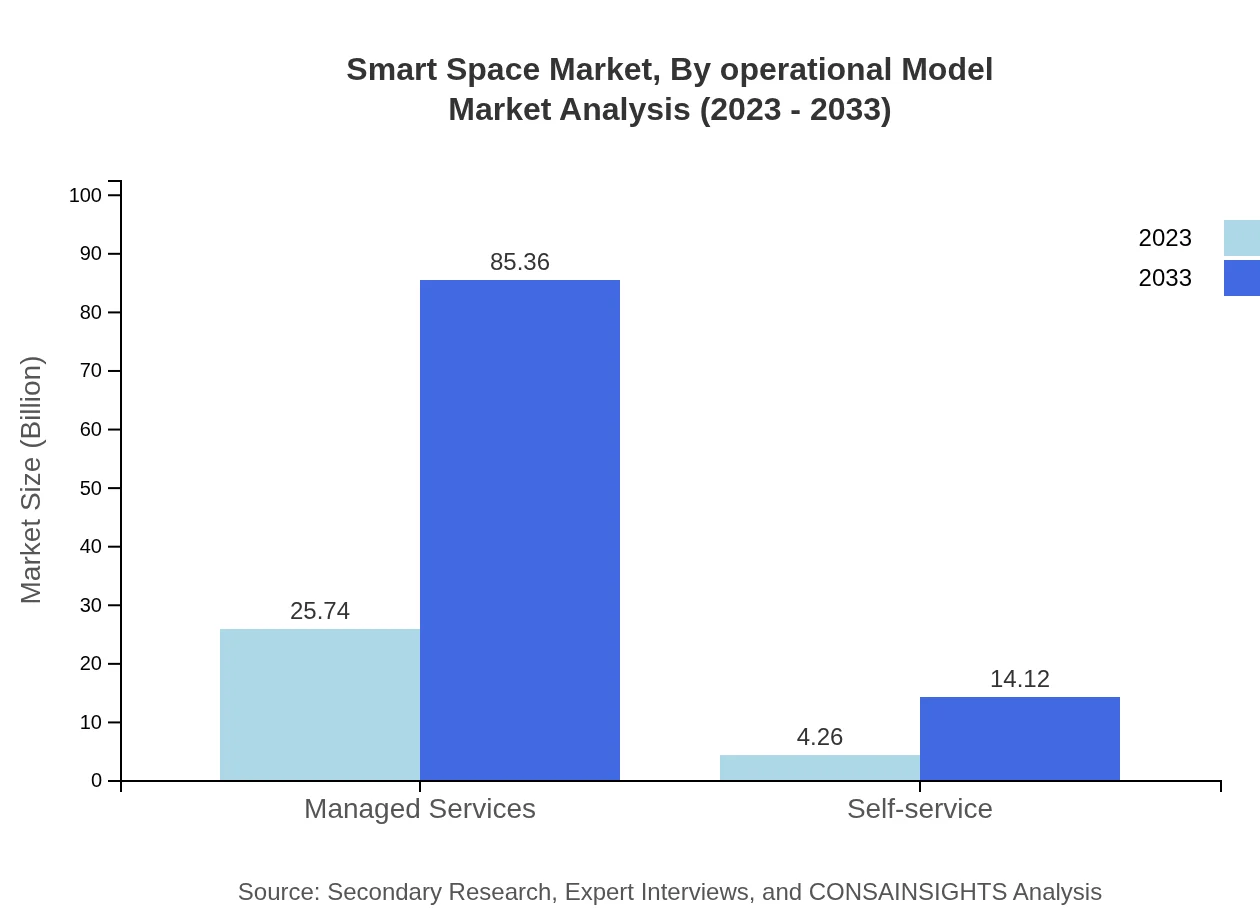Smart Space Market Report
Published Date: 31 January 2026 | Report Code: smart-space
Smart Space Market Size, Share, Industry Trends and Forecast to 2033
This report provides a comprehensive analysis of the Smart Space market, including market trends, size, forecasts from 2023 to 2033, and insights into various segments and regional performances.
| Metric | Value |
|---|---|
| Study Period | 2023 - 2033 |
| 2023 Market Size | $30.00 Billion |
| CAGR (2023-2033) | 12.2% |
| 2033 Market Size | $99.48 Billion |
| Top Companies | IBM Corporation, Cisco Systems, Inc., Honeywell International Inc. |
| Last Modified Date | 31 January 2026 |
Smart Space Market Overview
Customize Smart Space Market Report market research report
- ✔ Get in-depth analysis of Smart Space market size, growth, and forecasts.
- ✔ Understand Smart Space's regional dynamics and industry-specific trends.
- ✔ Identify potential applications, end-user demand, and growth segments in Smart Space
What is the Market Size & CAGR of Smart Space market in 2023?
Smart Space Industry Analysis
Smart Space Market Segmentation and Scope
Tell us your focus area and get a customized research report.
Smart Space Market Analysis Report by Region
Europe Smart Space Market Report:
The European Smart Space market, valued at $8.78 billion in 2023, is expected to expand to $29.12 billion by 2033. Stringent regulations aimed at sustainability and energy efficiency, alongside the EU’s green initiatives, are key growth drivers in this region.Asia Pacific Smart Space Market Report:
The Asia-Pacific region is poised for substantial growth, with the market expected to rise from $5.77 billion in 2023 to $19.14 billion by 2033. This growth is driven by rising urbanization, government initiatives for smart cities, and increased internet penetration across the region.North America Smart Space Market Report:
North America holds the largest share of the Smart Space market, estimated at $10.53 billion in 2023, projected to reach $34.93 billion by 2033. The robust adoption of innovative technologies and the strong presence of major corporations pushing for smart solutions fuel this growth.South America Smart Space Market Report:
The South American Smart Space market is anticipated to grow from $0.81 billion in 2023 to $2.69 billion by 2033. The development of smart infrastructure driven by government support and private sector investments along with sustainability initiatives will be the primary catalysts for market growth.Middle East & Africa Smart Space Market Report:
The market in the Middle East and Africa is predicted to grow from $4.10 billion in 2023 to $13.61 billion by 2033. This increase is largely due to rapid urbanization, growing investments in infrastructure, and a rising demand for efficiency and smart technology solutions across various sectors.Tell us your focus area and get a customized research report.
Smart Space Market Analysis By Technology
The market for smart technologies includes IoT devices, artificial intelligence, and cloud computing, with IoT technologies leading in both size and market share. Forecasts indicate a rise in IoT technology from $18.67 billion in 2023 to $61.89 billion by 2033, representing a crucial driver of growth, enabling seamless connectivity and operational efficiency across smart spaces.
Smart Space Market Analysis By Application
Applications of smart space technology are diverse, with smart buildings and smart cities dominating the market. The smart buildings segment is forecast to grow from $15.44 billion in 2023 to $51.19 billion by 2033, indicating a strong emphasis on energy efficiency, smart energy management, and improved user experience.
Smart Space Market Analysis By End User
Key end-users in the Smart Space market include commercial, residential, government, and healthcare sectors. The commercial segment is expected to increase its market size from $15.44 billion in 2023 to $51.19 billion by 2033 due to rising demands for automated systems in offices and public spaces.
Smart Space Market Analysis By Component
The components of the Smart Space market—hardware, software, and services—demonstrate significant growth. Hardware is projected to lead the market, growing from $18.67 billion in 2023 to $61.89 billion by 2033, driven by the proliferation of interconnected devices.
Smart Space Market Analysis By Operational Model
The operational models in smart spaces are evolving, with managed services and self-service options gaining popularity. Managed services are expected to grow from $25.74 billion in 2023 to $85.36 billion by 2033, as businesses seek comprehensive solutions for managing their smart infrastructure.
Smart Space Market Trends and Future Forecast
Tell us your focus area and get a customized research report.
Global Market Leaders and Top Companies in Smart Space Industry
IBM Corporation:
IBM is at the forefront of the smart space revolution, providing AI and cloud-based solutions that facilitate improved data management and decision-making in smart environments.Cisco Systems, Inc.:
Cisco specializes in network infrastructure that supports IoT and smart technologies, enhancing connectivity and integration in smart spaces worldwide.Honeywell International Inc.:
Honeywell offers a range of smart building technologies that enhance energy efficiency and promote sustainability, contributing significantly to the market.We're grateful to work with incredible clients.









FAQs
What is the market size of Smart-Space?
The Smart-Space market is currently valued at approximately $30 billion, with a projected compound annual growth rate (CAGR) of 12.2%. This growth is expected to expand significantly over the next decade.
What are the key market players or companies in the Smart-Space industry?
Key players in the Smart-Space industry include companies specializing in technology solutions, IoT systems, and smart building designs. These companies are pivotal in shaping the market landscape by providing innovative solutions for smart living.
What are the primary factors driving the growth in the Smart-Space industry?
Factors driving growth in the Smart-Space industry include the increasing demand for smart home technologies, the rise of IoT implementation, and advancements in artificial intelligence and cloud computing solutions that enhance connectivity and efficiency.
Which region is the fastest Growing in the Smart-Space?
North America is currently the fastest-growing region in the Smart-Space market. The market size in North America is projected to grow from $10.53 billion in 2023 to $34.93 billion by 2033, reflecting a robust adaptation of smart technologies.
Does ConsaInsights provide customized market report data for the Smart-Space industry?
Yes, ConsaInsights offers customized market report data tailored to the specific needs of clients within the Smart-Space industry. This includes detailed analyses and insights adjusted to reflect unique regional or sectoral demands.
What deliverables can I expect from this Smart-Space market research project?
Deliverables from the Smart-Space market research project include comprehensive reports, market forecasts, competitive analysis, segment data insights, and strategic recommendations designed to facilitate informed decision-making.
What are the market trends of Smart-Space?
Current trends in the Smart-Space market include the increasing integration of AI and IoT technologies, the growth of managed services, and an emphasis on sustainable smart solutions in residential and commercial sectors.

